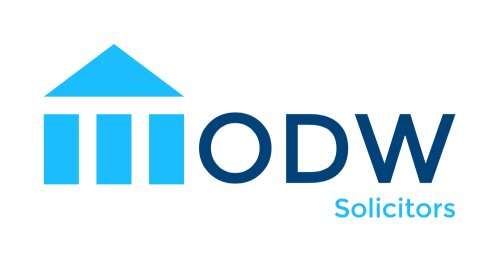Best Restructuring & Insolvency Lawyers in Gorey
Share your needs with us, get contacted by law firms.
Free. Takes 2 min.
List of the best lawyers in Gorey, Ireland
About Restructuring & Insolvency Law in Gorey, Ireland
Restructuring and insolvency law in Gorey follows the national legal framework of the Republic of Ireland. If a business or individual in Gorey faces significant financial difficulty, the options available and the legal procedures to follow are governed by Irish company, personal insolvency and bankruptcy laws, and decided by the Irish courts where required. Local practitioners in Gorey and the surrounding County Wexford area can provide practical, place-based advice, but the substantive rules and formal processes apply across Ireland. Common procedures include examinerships, receiverships, liquidations for companies, and insolvency arrangements or bankruptcy for individuals. Early professional advice can improve outcomes and help protect business value, personal assets and future credit prospects.
Why You May Need a Lawyer
You may need a lawyer when facing restructuring or insolvency for several reasons. A solicitor experienced in insolvency can:
- Explain your legal options and the likely financial and personal consequences of each route.
- Draft and negotiate proposals to creditors, including formal arrangements under the personal insolvency regime.
- Represent you or your company in court for examinership applications, liquidation petitions, bankruptcy proceedings or related disputes.
- Advise directors about duties and potential personal liability, and help prepare defences to creditor claims or applications for winding-up.
- Liaise with Insolvency Practitioners, receivers, banks and other secured creditors to secure the best possible practical outcome.
- Manage complex creditor negotiations, restructuring plans, or asset sales so that statutory requirements are met and reputational risk is reduced.
Local Laws Overview
Key legal pillars relevant to restructuring and insolvency in Gorey are national statutes and institutions, including but not limited to:
- Companies Act 2014: Governs corporate procedures such as examinership, voluntary and court-ordered liquidation, and many aspects of company law that affect distressed companies.
- Personal Insolvency Acts 2012 and subsequent related measures: Created formal routes for personal debt restructuring, including Debt Settlement Arrangements and Personal Insolvency Arrangements, and established the role of Personal Insolvency Practitioners who prepare and negotiate proposals with creditors.
- Bankruptcy legislation and related rules: Bankruptcy remains a formal route for individuals who cannot reach arrangements with creditors. The rules on petitioning, discharge and consequences are governed by bankruptcy statutes and court practice.
- Receivership: Secured creditors with fixed charges can appoint receivers to realise charged assets. Receivership is typically driven by the terms of security documents and the rights of the secured creditor.
- Court system and enforcement: Major insolvency matters are handled in the Irish courts. Some matters may go to the High Court, others to the Circuit Court, depending on the nature and complexity of the case. Insolvency matters can also trigger regulatory scrutiny from the Companies Registration Office and the Office of the Director of Corporate Enforcement where director conduct is in question.
- Cross-border rules: If you have assets, creditors or entities outside Ireland, European Union regulations and international insolvency principles may affect jurisdiction and the recognition of foreign insolvency measures.
Because these laws interact and can have significant personal, tax and regulatory consequences, a local solicitor can explain how the national rules apply to your circumstances in Gorey.
Frequently Asked Questions
What is the difference between examinership, receivership and liquidation?
Examinership is a court-supervised process that aims to rescue a solvent or potentially viable company by giving it protection from creditors while a rescue plan is prepared. Receivership occurs when a secured creditor enforces its security by appointing a receiver to realise the assets subject to the security. Liquidation, or winding-up, is the process of closing a company, selling its assets and distributing proceeds to creditors and, if any funds remain, to shareholders. Each process has different consequences for management control, creditor rights and the ability of the company to continue trading.
What personal insolvency options exist if I cannot pay my debts?
Options include informal negotiations with creditors, formal personal insolvency processes such as Debt Settlement Arrangements or Personal Insolvency Arrangements under Irish legislation, and bankruptcy. The right option depends on the level and type of debt, your income and assets, and creditor cooperation. A solicitor or a Personal Insolvency Practitioner can assess which route is feasible and advise on the steps to take.
How do I start a formal process for a company in distress?
Starting a formal corporate process often begins with professional advice from a solicitor and an insolvency practitioner or accountant. For examinership, an application must be made to the High Court and evidence provided that the company has a reasonable prospect of survival. For voluntary liquidation, directors must follow statutory procedures and hold a creditors meeting where required. If a creditor petitions to wind up a company, the creditor will issue a petition in court. Early engagement with advisers helps ensure statutory steps and timelines are met.
Will I lose my home if I enter personal insolvency or bankruptcy?
Whether your home is at risk depends on the nature of the debt, whether it is secured against the property, your equity and whether a realistic restructuring plan is reached with creditors. In some insolvency arrangements, the home can be retained where creditors accept a restructured payment plan. In bankruptcy, trustees may have powers to realise assets, but there are statutory protections and exemptions that apply in some circumstances. Because outcomes depend on individual facts, get legal advice early to understand risks and possible protections.
How long do formal insolvency processes usually take?
Timelines vary widely. An examinership typically provides initial protection for up to 100 days while a rescue plan is negotiated and presented to the court. Receivership durations depend on the work required to realise secured assets. Liquidation and bankruptcy processes can take many months or longer, particularly if there are disputed claims or complex asset realisations. Personal insolvency arrangements also vary depending on negotiation and creditor votes. A solicitor can give a realistic estimate based on your case.
Can directors be held personally liable for company debts?
Directors can face personal liability in certain circumstances, for example where they have provided personal guarantees, have acted unlawfully, engaged in wrongful or fraudulent trading, or breached statutory duties. If director conduct is later investigated, there may be regulatory or civil consequences. Early legal advice helps directors understand duties, mitigate exposure and, where appropriate, seek restructuring options that reduce personal risk.
What happens to employees if my company enters liquidation or examinership?
In examinership the company may continue trading and retain staff as part of a rescue plan. In liquidation, employees become creditors for unpaid wages and certain redundancy payments; these claims are subject to statutory priorities. Insolvency can also trigger employment law obligations, and redundancy or consultation procedures must be followed where relevant. Detailed advice is necessary to manage employment issues correctly and to understand entitlements.
Can creditors force my business into liquidation?
Yes. A creditor with an undisputed debt can petition the court to wind up a company if the company cannot pay its debts. In many cases, formal demand procedures and notice periods apply before a petition is successful. If you receive a winding-up petition, seek urgent legal advice, as there are procedural and substantive defences and potential restructuring options that might avoid liquidation.
How much does insolvency advice and legal representation cost?
Costs vary by complexity, the level of court involvement, and the practitioner. Initial consultations may be offered at a fixed fee. Complex court applications or long negotiations typically cost more. There are also statutory and practitioner fees for formal insolvency processes. Free or low-cost advice is available from organisations such as Money Advice and Budgeting Service and Citizens Information, and you should discuss fee structures and estimates with prospective solicitors before you instruct them.
Where can I get free or low-cost help in Gorey?
Support options in and around Gorey include national services with local points of contact. Money Advice and Budgeting Service (MABS) provides free debt advice and can help prepare budgets and suggest negotiation strategies. Citizens Information offers general guidance on debt and insolvency rights. Local solicitors offer initial consultations, and some may provide sliding scale or payment plans. If your case involves employee or regulatory issues, you may also need specialist advice. Contacting these services early is important.
Additional Resources
Helpful organisations and bodies to consult include the following local and national authorities and services:
- Money Advice and Budgeting Service (MABS) for free, confidential debt advice.
- Citizens Information for general explanations of rights, entitlements and procedures.
- Insolvency practitioners and Personal Insolvency Practitioners who prepare personal insolvency proposals.
- Insolvency Service of Ireland and the Courts for formal insolvency processes and filings.
- Companies Registration Office for company filings, charge registrations and related records.
- Office of the Director of Corporate Enforcement for matters involving alleged director misconduct.
- Law Society of Ireland to find a qualified solicitor and to check professional credentials.
- Local solicitors and accounting firms in Gorey and Wexford who specialise in insolvency and restructuring matters.
Next Steps
If you need legal assistance for restructuring or insolvency in Gorey, consider these practical next steps:
- Gather documents: collect bank statements, loan agreements, charge documents, recent company accounts, tax correspondence and details of creditors. This will speed up any initial advice.
- Seek initial advice quickly: contact a solicitor experienced in insolvency or a Personal Insolvency Practitioner to discuss your options. Early intervention often improves outcomes.
- Get free advice first if you need immediate help: contact MABS or Citizens Information for practical debt management support while you arrange legal representation.
- Do not ignore demands and court papers: failure to respond can limit your options. If you receive a statutory demand or petition, act promptly and obtain legal advice.
- Consider alternatives to formal insolvency: negotiation, staged repayment plans or voluntary restructuring may preserve value and minimise reputational damage.
- Prepare for the practical implications: understand employment obligations, creditor communications and cash-flow priorities while you plan next steps.
- Ask about fees and likely timelines: before instructing a solicitor, confirm how billing will work and request a realistic timetable for the work required.
Facing restructuring or insolvency can be stressful, but getting timely, local legal advice in Gorey and combining it with the free supports available will help you make informed decisions and protect your interests.
Lawzana helps you find the best lawyers and law firms in Gorey through a curated and pre-screened list of qualified legal professionals. Our platform offers rankings and detailed profiles of attorneys and law firms, allowing you to compare based on practice areas, including Restructuring & Insolvency, experience, and client feedback.
Each profile includes a description of the firm's areas of practice, client reviews, team members and partners, year of establishment, spoken languages, office locations, contact information, social media presence, and any published articles or resources. Most firms on our platform speak English and are experienced in both local and international legal matters.
Get a quote from top-rated law firms in Gorey, Ireland — quickly, securely, and without unnecessary hassle.
Disclaimer:
The information provided on this page is for general informational purposes only and does not constitute legal advice. While we strive to ensure the accuracy and relevance of the content, legal information may change over time, and interpretations of the law can vary. You should always consult with a qualified legal professional for advice specific to your situation.
We disclaim all liability for actions taken or not taken based on the content of this page. If you believe any information is incorrect or outdated, please contact us, and we will review and update it where appropriate.









